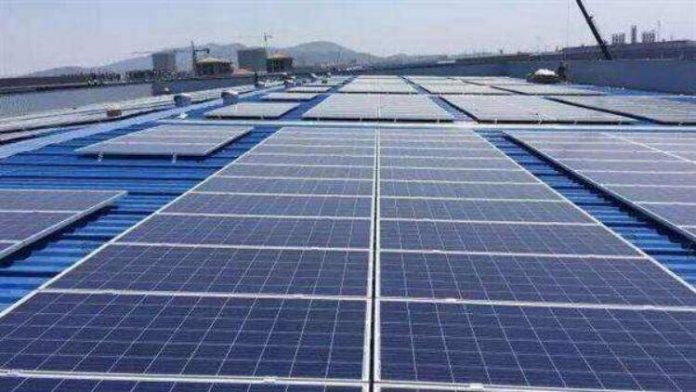The New Jersey Board of Public Utilities (NJBPU) announced that 2019 was a record-breaking year for New Jersey’s solar energy program, with the most solar capacity installed in a single year.
The most recent report from New Jersey’s Clean Energy Program shows that 447 MWDC of solar capacity commenced commercial operations in the state between January 1 and December 31, 2019. That brings the state’s total capacity up to 3,190 MWDC through the end of the year, serving 5% of the state’s energy needs, up from 2,743 MWDC from the beginning of last year.
“In New Jersey, we are incredibly proud of our solar industry. From the standout year we had in 2019 and for many decades to come, one of our top priorities is to keep the industry thriving as we work to combat climate change and meet Governor Murphy’s goal of 100% clean energy,” said NJBPU President Joseph L. Fiordaliso. “Solar always has — and always will — have a major presence here in New Jersey, and will continue to create jobs, improve air quality and public health and ease our reliance on more polluting fuel sources.”
The state’s previous record for the highest amount of installed solar capacity within a calendar year was in 2011, when 446.8 MWDC commenced commercial operations.
Despite having the fifth-smallest land area of any state, New Jersey has long been considered a national leader in solar. It is currently ranked seventh in the nation in installed solar capacity and ninth overall in clean energy jobs, with nearly 9,000 solar industry jobs throughout the state.
NJBPU is working closely with stakeholders to develop a new solar incentive structure for the state that will ensure continued robust growth for the industry while making it more affordable and sustainable for ratepayers. The new solar incentive will ease costs on consumers and ensure the industry continues to play a key role in New Jersey’s clean energy future.
In 2019, as part of its new Community Solar Energy Pilot Program, NJBPU awarded nearly 80 MW of renewable energy capacity across 45 community solar projects that will power low- and moderate-income communities, improving equity in New Jersey’s solar marketplace and expanding access to renewables to an estimated 15,500 homes.
Solar energy is featured prominently in New Jersey’s Energy Master Plan, where a “least-cost” scenario recommends that New Jersey build 17,000 MW of solar by 2035, and that solar provide 34% of the state’s energy mix in 30 years. This renewable energy is central to reaching Governor Murphy’s goals of 100% clean energy by 2050 and 80% lower carbon emissions compared to 2006 levels.
While processing the final registrations for SREC (Solar Renewable Energy Certificate) eligibility that it received in February, NJBPU received post-construction certification packages for solar capacity installed in late 2019 that demonstrated that the state had attained its greatest year ever for solar construction. The post-construction certification packages require a “Permission to Operate” letter issued by an Electric Distribution Company in order to demonstrate the commencement of commercial operations and become eligible to receive “legacy” SRECs. NJBPU typically does not receive all confirmations of installations in a given month for several months after the close of the month.






